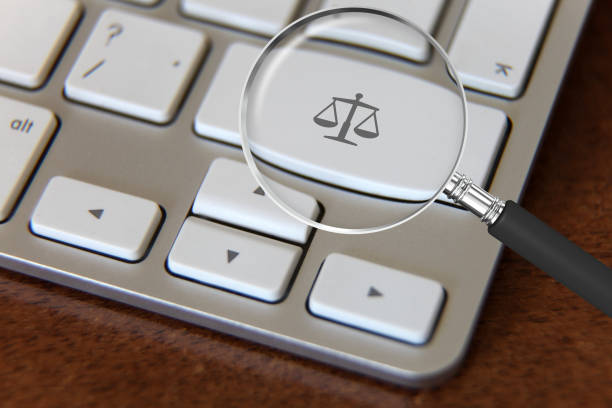Should We Submit Original Documents in Company
Should We Submit Original Documents in Company
In today’s digital world, the ancient science of Vedic astrology meets technology through tools like online marriage astrology calculators, offering clarity and cosmic predictions with just your date, time, and place of birth. But the real depth of prediction lies far beyond a calculator’s numerical result — it’s in the hands of a skilled astrologer who interprets your chart with intuition, scriptural wisdom, and cosmic observation. That’s where Nayku’s astrology services shine — providing precise, confidential, and personalized online marriage prediction sessions rooted in Vedic knowledge yet adapted for the modern digital seeker. This is not just about “when,” but why and how your marriage will unfold the way it does. Let’s uncover that cosmic mystery step by step.
In the era of digital convenience and remote work, a common question arises: should we submit original documents in company? Whether you're onboarding, renewing documents, or involved in internal audits, understanding when to hand over originals matters. Let’s dive into best practices, risks, legal perspectives, and smart alternatives for handling corporate document demands.

Why Companies Request Original Documents
Corporations typically insist on original documents for these core reasons:
- KYC and Compliance – To prevent fraud, identity validation plays a critical role. Originals such as national IDs, passports, or academic certificates are harder to forge.
- Due Diligence – For contractual agreements, performance bonds, or employee background checks, authenticity is key.
- Legal or Regulatory Needs – Industries like finance, healthcare, or defense often require originals under law.
- Audit Trails – Internal and external auditors may request originals to ensure information integrity & adherence to standards.
In short, originals add a layer of security, trust, and compliance.
Not sure whether to hand over your original documents at work? Nayku Legal helps you understand your rights and the safest way to protect your credentials.
Risks Associated with Submitting Originals
However, handing over original documents exposes both individuals and companies to real risks:
- Loss or Damage – Documents can be misplaced, lost in transit, or damaged during review.
- Fraud or Misuse – Originals may be misappropriated, copied, or altered without your consent.
- Privacy & Data Breach Issues – Sensitive data can be duplicated or misused by unsecure third parties.
- Limited Access – You temporarily lose your only copy unless a certified duplicate is provided.
Understanding these risks helps both sides craft safer policies.

Legal and Practical Standards
Legal Requirements by Country
- India: Many processes still require originals (e.g., PAN/KYC). However, attested photocopies are legally accepted in most private sector transactions.
- USA/UK: Certified copies (not originals) are generally sufficient except in very specific cases like affidavit or power of attorney recording.
- EU/Canada: Digital certification and notarized copies are increasingly accepted—especially in digital-first and compliance-focused industries.
Best Compliance Practice
- Identify which documents legally require originals.
- Where originals aren't mandatory, opt for notarized or certified copies.
- Pair submissions with official acknowledgement receipts, either physical or digital.
- Ensure companies safeguard originals with registered jogs, chain-of-custody records, and return policies.
Your documents matter. Nayku Legal offers expert advice on employment law, compliance, and safe document handling practices to avoid costly mistakes.
When Is It Acceptable to Submit Originals?
It can make sense to submit originals in these situations:
| Situation | When Original Docs May Be Required |
| Employee Background Checks | Originals may be requested once, after arrival on the job. |
| Visa Documentation | Immigration departments often need secure verification of originals. |
| Legal Filings / Audits | Statutory support documents may require original signatures or seals. |
| Education Verification | Universities sometimes ask for originals for enrollment validation. |
Even so, this should be rare, for short durations, and with formal return policies.
Alternatives to Handing Over Originals
Here are smart, modern options that protect you while satisfying company needs:
- Notarized & Certified Copies – Legally valid and often accepted in place of originals.
- Sworn Affidavits – Some jurisdictions allow sworn affidavits confirming the authenticity of copies.
- Digital Signatures + Blockchain Timestamping – Provide secure, verifiable records with traceability.
- Video Verification – Real-time authentication where you display the document on camera.
- Escrow Services – Third-party companies hold originals in secure vaults and verify copies as needed.
- Acceptance Certificates – Writeups signed by both parties acknowledging receipt and condition, with stated return timelines.
At Nayku, we believe in empowering professionals with legal clarity. From employment contracts to document submission policies—we’ve got you covered
How to Handle Requests To Submit Originals
If your company asks for originals, follow this checklist:
- Ask why originals are required.
- Confirm if certified copies are acceptable.
- Request formal receipt.
- Note return deadline.
- Ensure secure handling and storage (locks, restricted access).
- Get signed proof of return.
For added security, you can negotiate using video calls and technology-driven verification methods.

Company Responsibility – Policy Considerations
Companies should implement clear policies:
- Define when and why originals are needed.
- Offer acceptable substitutes (certified copies).
- Use Secure Submission Protocols: Digital encryption, access logs, restricted areas.
- Provide Document Return Policies: Timeframes, condition reports.
- Train staff on data privacy, storage standards, and compliance.
Strong policies decrease risk, build trust, and streamline operations.
Technology’s Role in Document Handling
Advances in tech enable safer and more efficient verification:
- Encrypted Document Management Systems (DMS) help store and track certified copies and originals.
- Mobile Notarization Apps allow quick verification and digital certification.
- Blockchain Solutions ensure immutable proof of authenticity, tamper-proofing documents.
- AI-Assisted OCR & Verification speeds validation while reducing human error.
- Secure Video Verification Tools offer real-time compliance with legal strength.
These tools allow individuals and institutions to minimize original document submissions without compromising trust.
Concerned about company document demands? Speak with Nayku Legal to ensure you’re not compromising your legal rights or personal security.
Practical Scenarios and Best Practices
- Employee Onboarding: Request certified copies, not originals. Use secure scanned storage; return copy post-click.
- International Applicants: Use video verification + notarized copies—avoid shipping originals.
- Vendor Documentation: Ask for scanned + notarized license copies, submit originals to escrow only if legally mandatory.

Final Takeaways
- You should only submit originals when absolutely necessary, legally required, and momentarily held.
- Certified/notarized copies are often just as valid and far safer.
- Use digital and procedural safeguards to minimize risk.
- Individuals and companies both benefit from policies that prioritize security, transparency, and compliance.
Related Articles

Find Best Online Lawyers in Bhopal Near Me
Find the best online lawyers in Bhopal near you for instant legal consultation, expert guidance, and...
Read More
Experienced Lawyers Online Legal Consultations In Bhopal
Connect with experienced lawyers in Bhopal for online legal consultations. Get reliable advice and s...
Read More
Get Professional Advice From Best Lawyers in Bhopal
Find top-rated lawyers in Bhopal offering expert legal advice. Get solutions for family, property, b...
Read More
